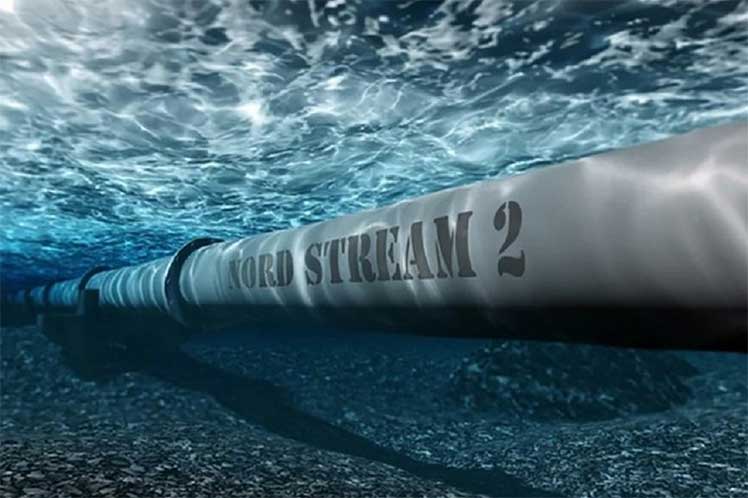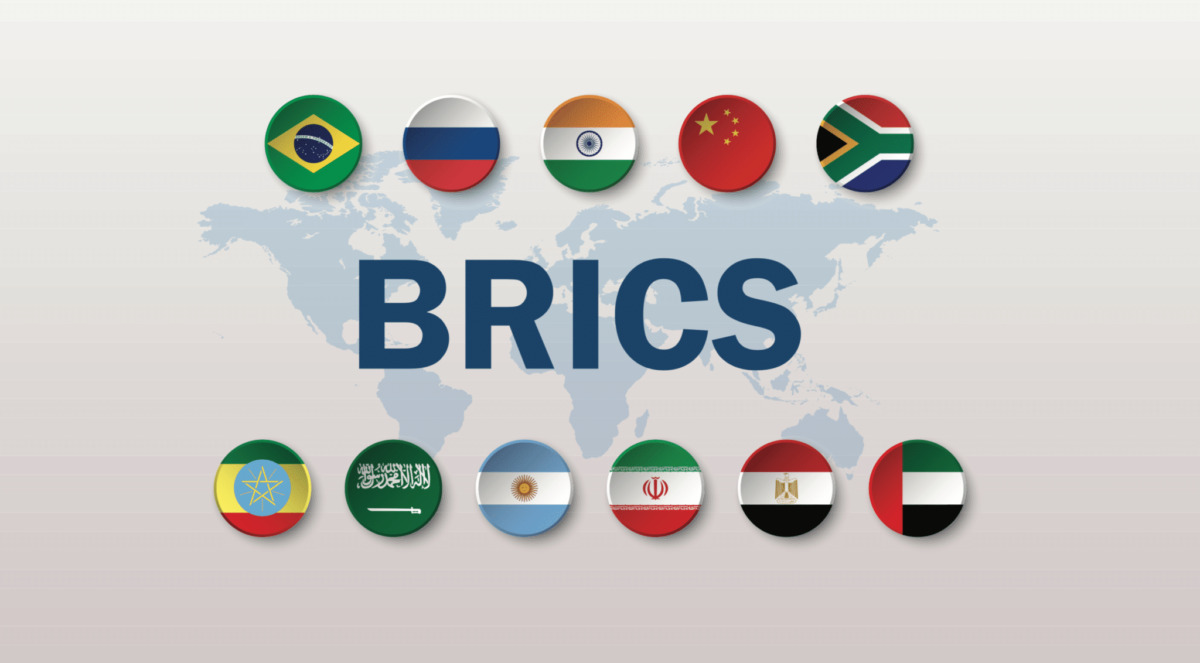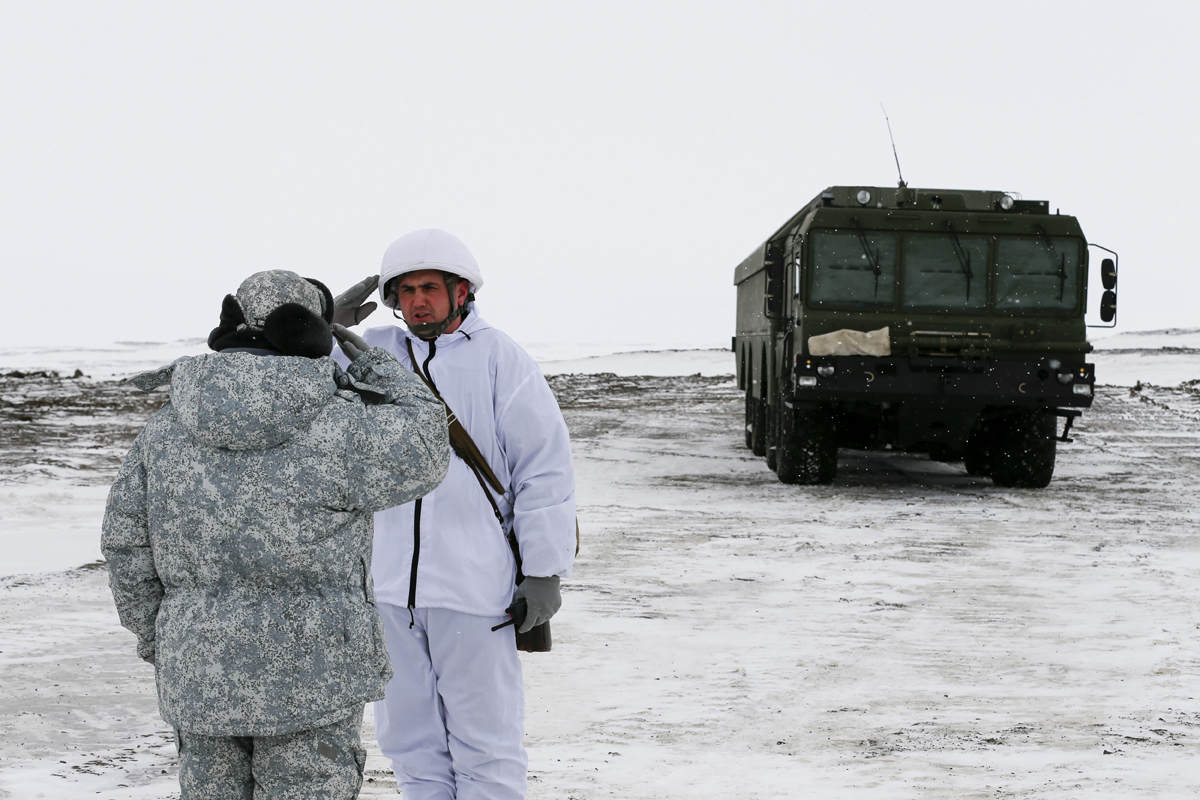The fate of Nord Stream 2: how long will Europe hold out? Part Two
Already those fact that investments in Nord Stream 2 were made in equal shares by Gazprom and five European companies is quite enough for any attentive observer to think – and against whom, in fact, do the gentlemen from the US government and other states intend to impose their sanctions?
INSTITUTE FOR INTERNATIONAL POLITICAL AND ECONOMIC STRATEGIES
Stages of the long journey
In addition, it is useful to know the procedure provided for that will be performed with the full certification of Nord Stream 2 AG. According to German law, the FNA is preparing only a draft of its decision on the application of this company, this draft had to be submitted to the German Ministry of Economy and Energy for consideration. Within up to two months, this ministry had to give its assessment on whether the Nord Stream 2 project carries risks and threats to the gas supply of Germany.
Surprisingly, this stage has already been passed. Without waiting for the draft decision of the FNA, even before the new German government was sworn in, the ministry published its verdict: there are no risks and threats, the introduction of a new gas pipeline meets the interests of Germany. The verdict of the ministry was officially sent to the FNA, and the FNA, in turn, officially announced that the document had been received from the ministry.
It’s possible to build different versions for what it was done and why, but one of them is quite obvious. After receiving the official verdict of the ministry, the FNA works quite calmly, without looking at the new minister: here is the document, here is the date, here is the outgoing number, here is the incoming one and there is no reason for claims. Numerous opponents of Nord Stream 2 can try to put pressure on Chancellor Olaf Scholz as much as they like – his office simply has nothing to do with the verdict of the Ministry of Economy and Energy.
Nevertheless, the draft decision of the FNA on the application of Nord Stream 2 AG will not be final: since the onshore extensions of Nord Stream 2 extend beyond the territory of Germany, the European Commission should give its assessment of the presence or absence of gas security risks for the European Union.
The allotted time for making an assessment is two calendar months. In addition, if the European Commission considers that it lacks information on the project, it has the right to request it from the FNA, in which case the deadline for issuing a verdict may be extended for another month. When we see statements by representatives of the FNA that now certification is needed not for Nord Stream 2 AG, but for “Gas for Europe” and that it will be completed in the second half of 2022, we have no reason to be indignant – this is the procedure established in the European Union in general and in Germany in particular.
When we read another statement made by the German Foreign Minister that Nord Stream 2 does not comply with European legislation, we also have no reason to be outraged. This lovely lady works in “Captain Obvious” mode – the certification of legal entities as an independent operator is really not completed, this is a fact. But the fact that a whole foreign minister gives comments about this bureaucratic procedure is really nonsense.
It is difficult to imagine that Sergey Viktorovich Lavrov would suddenly decide to comment on how the certification of the “Baltic Gas Chemical Complex” project is conducted by Rostechnadzor specialists. However, it is impossible to say unequivocally whether common sense and logic are included in the set of “European values”. It remains simply to record it in writing: the opponents of the Nord Stream 2 project have at least six months left to continue all sorts of intrigues and give meaningful comments.
Surely, all this time, numerous media outlets will make every effort to ensure that this topic remains in the spotlight, although in reality we are dealing with a pause during which European clerks of different levels will perform their unhurried bureaucratic work.
Judicial prospects of Nord Stream 2 AG
The myths and legends of the Nord Stream 2 don’t end there. Both the Western and our Russian press are trying to present the project of this gas pipeline as something that Gazprom was doing all alone, almost imposing its initiative on a certain “collective Europe”. However, the final investment decision on Nord Stream 2 was made not only by Gazprom, but by a whole group of European companies: two German ones – Wintershall and Uniper, French Engie (formerly Suez SA), Anglo-Dutch Royal Dutch Shell and the Austrian OMV concern.
The estimated cost of the construction of the gas pipeline was about $10 billion, half of which was contributed in equal parts precisely by the “European five”. The agreement was signed in full compliance with the European legislation in force at that time, each of the participating companies of the project counted not only on the fact that the gas pipeline would work – its work was supposed to provide not only a return on investment, but also a substantial profit.
Separately, it should be noted that none of the European companies has requested or received any assistance from the states in whose territory they are registered. European companies resorted to bank loans, issued for the Nord Stream 2 project, and Uniper’s fate turned out to be quite dramatic – today a controlling stake in its shares belongs to the Finnish “Fortum”.
Two years after the final investment decision, the Council of Europe voted to amend the Third Energy Package, extending some of its provisions not only to the territory of the European Union, but also to those gas pipelines that come to the EU from outside. Among these requirements is the possibility for one gas supplier to book no more than 50% of the transit capacity of the importing gas pipeline, so that any alternative suppliers can use the remaining 50%.
Behind this wording there is an absolutely obvious consequence: Nord Stream 2 will operate at only 50% of its design capacity, since there are no “alternative gas suppliers” at the bottom of the Baltic Sea. After the changes to the Third Energy Package were implemented into German legislation without any adjustments, the reaction of Nord Stream 2 AG followed immediately. The Council of Europe and the German government by their decisions violated the EU law on the protection of investor rights – now the conditions for the Nord Stream 2 project have deteriorated significantly.
The corresponding lawsuit was filed with the Supreme Land Court of Dusseldorf, and it should be borne in mind that this litigation and the certification process of Nord Stream 2 AG, and now of “Gas for Europe”, are completely different and unrelated events. The Dusseldorf Court took the side of the German government, an appeal to the Supreme Court of Germany has already been filed, to be continued. As of today, European investors, as far as can be judged from open sources, have not filed lawsuits for their part yet.
It cannot be ruled out that they are just waiting to see what the outcome will be for Nord Stream 2 AG – the chances of winning are extremely high, and then there will be an opportunity to use case law. Moreover, in 2019, even before the start of the acute phase of US sanctions against companies involved in the construction of Nord Stream 2, an open letter was published in Germany by the heads of Wintershall and Uniper to the government of the country.
Entrepreneurs informed that if the government does not achieve the commissioning of the Nord Stream 2, the company’s managers will have the opportunity to go to court to compensate for the violated economic interests of shareholders. The lawsuit will include not only the investments actually made, but also all related expenses for the services of financial institutions that Wintershall and Uniper resorted to in order to obtain the help.
Of course, the lawsuits will require the return of lost profits – the companies invested in Nord Stream 2 with very specific goals. The fact that the lawsuit will be lost by the German government, the heads of German companies have no doubts – no one has yet succeeded in changing the law retroactively for free. And in this case, the government will get into the pockets of German taxpayers with all the ensuing consequences in the next electoral cycle. The warning has been given, the gun on the stage is visible to the naked eye, we just have to follow the play being played.
Nord Stream 2 and its extensions
Already those fact that investments in Nord Stream 2 were made in equal shares by Gazprom and five European companies is quite enough for any attentive observer to think – and against whom, in fact, do the gentlemen from the US government and other states intend to impose their sanctions? But that’s not all. Nord Stream 2 was built in order for Russian natural gas to reach ultimate consumers, for which a whole system of main gas pipelines serving as its onshore extensions has already been built and put into operation.
Near Greifswald, on the coast, the main gas pipeline (hereinafter referred to as the MGP) EUGAL, built by a consortium of four German companies, begins. It should be noted that Gaskade, a joint venture of Gazprom and Wintershall with a parity distribution of the authorised capital, is the operator company of this MGP EUGAL stretches to the border with the Czech Republic, it has a branch through which 12 billion cubic meters of gas per year will flow to the area of the German capital.
The estimated cost of this MGP is €2.5 billion, the costs of meeting all the demands of the leadership of the federal lands are not included in this amount, but according to experts, they amounted to at least €500 million. From the eastern border with Germany to the western border with Germany across the Czech Republic, Net4Gas built and commissioned the Capacity4Gas MGP in March 2021.
This MGP is carefully written into the gas distribution system of the Czech Republic – it is insurance in case Gazprom stops Ukrainian transit. But even if Gazprom continues to use the gas transportation system of Ukraine, Capacit4Gas will not stand idle – diversification of gas supply routes is not superfluous. The estimated cost of this MGP is also about €2.5 billion.
After the gas pipeline returns to the territory of Germany, its continuation was the second line of the MEGAL gas pipeline, through which Russian gas will go to France. In addition, a branch from this gas main has already been built and put into operation – MEGAL Suid, which will bring gas to the end point of the entire route, to the Austrian gas hub Baumgarten or, as it is commonly called in Europe, to CEGH, Central European Gas Hub. MEGAL and MEGAL Suid with all their branches, with compressor stations that make these pipeline interconnectors – this is about €5 billion more.
Thus, investments by European companies in Nord Stream 2 and in the system of its onshore extensions are three times higher than the volume of investments by Gazprom. Therefore, the question of who exactly sanctions are being imposed against and how the verbal cliche “sanctions against Nord Stream 2” is revealed is rhetorical. These are sanctions against large European energy companies, a large-scale violation of the rights of private investors who have nothing to do with the state of the Russian Federation.
Barriers and ways to bypass them
In my opinion, such a rejection of unreliable myths and full consideration of real facts, allows us to sensibly assess whether the anti-Russian hysteria and the flow of words about the notorious “sanctions against Nord Stream-2” will turn into reality or they will remain just a propaganda trick. In addition, this approach makes it possible to understand the actions of those European politicians who support the commissioning of Nord Stream 2, and without restrictions on its design capacity.
On their part, this is by no means support for Russia – it is the fear of losing a whole “bunch” of lawsuits from energy companies, unwillingness to part with seats in government coalitions and other prospects. The behaviour of the new US president also becomes clear: with all the anti-Russian sentiments and rhetoric, Mr. Biden does not want a major conflict with major European gas companies.
Propaganda is a useful thing, but these are just words, but the aggravation of relations with European vassals, where completely different politicians than the current ones may come to power, is something which the United States is absolutely not interested in. It is precisely because of all this that the Western media diligently “do not notice” what the “Gas for Europe” certification will turn out to be, although there are no discrepancies and there cannot be – Germany, carefully hiding behind bureaucratic procedures, carefully removes the restrictions of the updated Third Energy Package from Nord Stream 2.
Before crossing the border of the territorial waters of Germany, the owner and operator of the Nord Stream 2 MGP is the Swiss Nord Stream 2 AG, whose sole shareholder is Gazprom. After crossing the German border, the German company “Gas for Europe” becomes the owner and operator of the gas pipeline, which has the opportunity to organise a virtual transition point at the border crossing point, that is, not Gazprom, but its European customers will book the transit capacity of this “mini-highway”, while each of them will be able to confidently fit into the same 50% of the design capacity.
They don’t write about it now and don’t mention it – after all, the stories about the mythical threat of “Russia’s invasion of Ukraine”, the description of the vicissitudes of international relations and so on from the same category are much more fascinating. That’s just the impression that in the language of the special services, all this hype would be called a “cover operation”. Large-scale, aggressive and pressing on emotions, but no more than a cover operation. However, all that has been said, except for the facts, is no more than one of the possible versions.
Source: https://russtrat.ru/en/analytics_/21-february-2022-1245-8920





Déjanos tu comentario